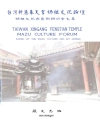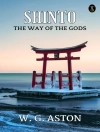Bringing together the work of leading scholars of religion in imperial Japan and colonial Korea, this collection addresses the complex ways in which religion served as a site of contestation and negotiation among different groups, including the Korean Choson court, the Japanese colonial government, representatives of different religions, and Korean and Japanese societies. It considers the complex religious landscape as well as the intersection of historical and political contexts that shaped the religious beliefs and practices of imperial and colonial subjects, offering a constructive contribution to contemporary conflicts that are rooted in a contested understanding of a complex and painful past and the unresolved history of Japan’s colonial and imperial presence in Asia. Religion is a critical aspect of the current controversies and their historical contexts. Examining the complex and diverse ways that the state, and Japanese and colonial subjects negotiated religious policies, practices, and ministries in an attempt to delineate these “imperial relationships, ‘ this cutting edge text sheds considerable light on the precedents to current sources of tension.
Cuprins
Introduction: Empire of Religions: Exploring Belief and Practice in Imperial Japan and Colonial Korea.- Finding Religion in Japan’s Empire.- State Shinto Policy in Colonial Korea.- Korean Buddhist Historiography and the Legacies of Japanese Colonialism (1910-1945).- The Adventures of a Japanese Monk in Colonial Korea: Soma Shoei’s Zen Training with Korean Masters.- Eastern Learning Divided: The Split in the Tonghak Religion and the Japanese Annexation of Korea, 1904-1910.- Between God and Caesar: The Position of the Non-Church Movement in Korea and Japan from 1927 to 1945.- Developing an Imperial Theology: Transforming “Others” into “Brothers in Christ” for a Multiethnic Empire.- The Question of Quintessence: Buddhism in Wartime Japanese Academia.- Transnational Contexts of Tenrikyo Mission in Korea: Korea, Manchuria, and the United States.- Poch’ŏn’gyo and the Imperial State: Negotiations between the Spiritual and Secular Governments.- U.S. Occupation Policy on Shinto in Post-Liberation Korea and Occupied Japan.- Religion in Occupied Japan: The Impact of SCAP’s Policies on Shinto.
Despre autor
Emily Anderson received her Ph D from UCLA in 2010 and from 2010 to 2014 was Assistant Professor of Modern Japanese History at Washington State University (Pullman, WA); in 2014 she was visiting researcher at the New Zealand Asia Institute, University of Auckland. She is the author of
Christianity and Imperialism in Modern Japan: Empire for God (2014).












